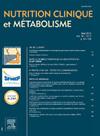Étude de la consommation de compléments alimentaires par les patients consultants en cabinet de médecine générale
IF 0.4
4区 医学
Q4 ENDOCRINOLOGY & METABOLISM
引用次数: 0
Abstract
Introduction
The consumption of food supplements (FS) affects between 22% and 59% of the French adult population, for uncertain benefits and potential risks. This study aimed to describe FS consumption among adult patients in general practice, estimate its prevalence, evaluate the physician's involvement in counseling, and identify associated consumption factors.
Methods
This cross-sectional study was conducted between March and July 2023 through a self-administered questionnaire among adult patients consulting a general practitioner in Levallois-Perret (92), Île-de-France, France. Descriptive analysis and univariate associations were performed.
Results
Among the 202 participants, 55% were currently consuming FS and 25% had consumed them in the past. However, only 25% were aware of potential toxicity. On average, patients consumed 2 FS for an estimated cost of €18 per month and for 2 to 3 different health claims, mainly fatigue, sleep disorders, and aesthetic concerns. Female gender and BMI ≥ 25 kg/m2 were significantly associated with aesthetic use. Male gender and regular physical activity were linked to muscle-related FS. Age was associated with cardiovascular health, aging, and joint/muscle pain. Although 66% of patients learned about FS through healthcare professionals and 82% considered it useful to discuss FS with their doctor, only 8% spontaneously disclosed their use during consultations.
Conclusion
Half of the patients consume FS, often with limited medical oversight. General practitioners have a key role in advising and monitoring, especially considering the potential risks and lack of high-quality evidence supporting FS efficacy.
咨询全科医生的病人膳食补充剂消费研究
食品补充剂(FS)的消费影响了22%至59%的法国成年人,其益处和潜在风险不确定。本研究旨在描述成人患者在一般实践中的FS消费,估计其患病率,评估医生参与咨询,并确定相关的消费因素。方法本横断面研究于2023年3月至7月在法国Île-de-France的勒瓦卢瓦-佩雷(Levallois-Perret, 92)的全科医生咨询的成年患者中通过自我填写的问卷进行。进行描述性分析和单变量关联分析。结果202名参与者中,55%的人正在服用FS, 25%的人曾经服用过FS。然而,只有25%的人意识到潜在的毒性。平均而言,患者每月消费2次FS,估计费用为18欧元,并且有2到3种不同的健康索赔,主要是疲劳、睡眠障碍和审美问题。女性和BMI≥25 kg/m2与审美使用显著相关。男性性别和规律的体育活动与肌肉相关的FS有关。年龄与心血管健康、衰老和关节/肌肉疼痛有关。尽管66%的患者通过医疗保健专业人员了解到FS, 82%的患者认为与医生讨论FS是有用的,但只有8%的患者在咨询期间自发地透露了他们的使用情况。结论一半的患者使用FS,往往缺乏医疗监督。全科医生在建议和监测方面发挥着关键作用,特别是考虑到潜在风险和缺乏支持FS疗效的高质量证据。
本文章由计算机程序翻译,如有差异,请以英文原文为准。
求助全文
约1分钟内获得全文
求助全文
来源期刊

Nutrition Clinique et Metabolisme
医学-内分泌学与代谢
CiteScore
0.80
自引率
16.70%
发文量
216
审稿时长
78 days
期刊介绍:
Nutrition Clinique et Métabolisme is the journal of the French-speaking Society of Enteral and Parenteral Nutrition. Associating clinicians, biologists, pharmacists, and fundamentalists, the articles presented in the journal concern man and animals, and deal with organs and cells. The goal is a better understanding of the effects of artificial nutrition and human metabolism. Original articles, general reviews, update articles, technical notes and communications are published, as well as editorials and case reports.
 求助内容:
求助内容: 应助结果提醒方式:
应助结果提醒方式:


